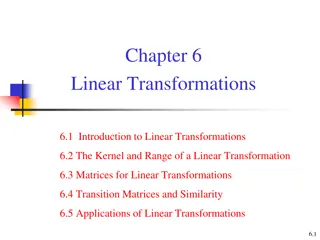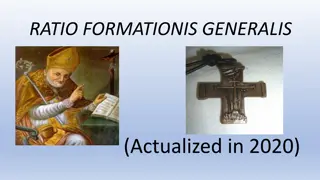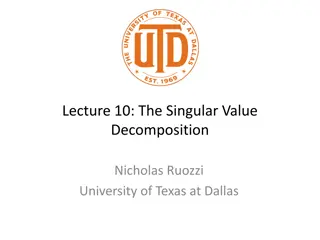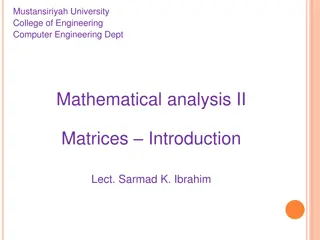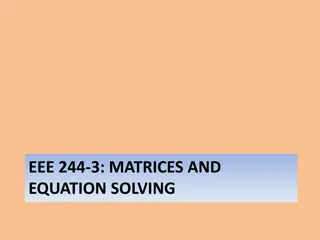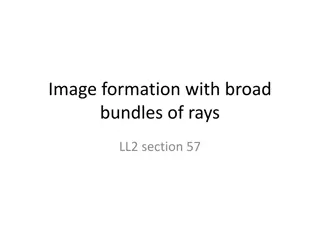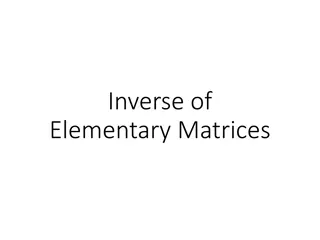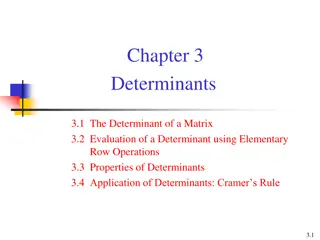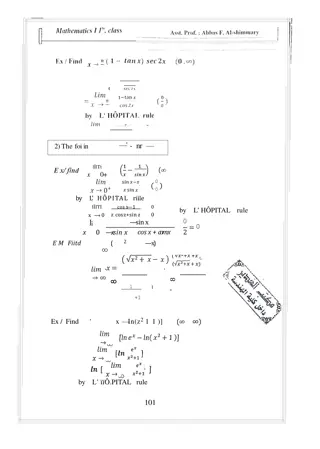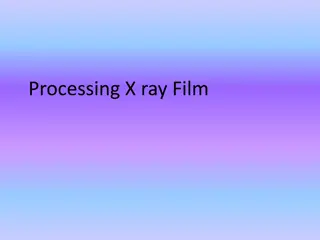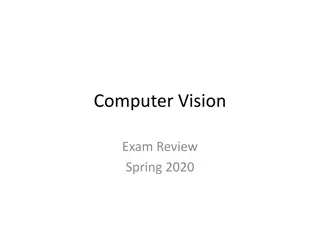Visualizing Image Formation and Rotation Matrices
Discover the principles of image formation processes and rotation matrices in 3D space through a series of informative illustrations. From projection equations to changing coordinate systems and properties of rotation matrices, explore the concepts visually. Learn how rotations are represented, properties of rotation matrices, reflections, and the axis-angle relationship in rotations. Dive into rotation matrices derived from axis and angle, including the Rodrigues formula. Enhance your understanding of these fundamental concepts with clear visual aids.
Download Presentation

Please find below an Image/Link to download the presentation.
The content on the website is provided AS IS for your information and personal use only. It may not be sold, licensed, or shared on other websites without obtaining consent from the author.If you encounter any issues during the download, it is possible that the publisher has removed the file from their server.
You are allowed to download the files provided on this website for personal or commercial use, subject to the condition that they are used lawfully. All files are the property of their respective owners.
The content on the website is provided AS IS for your information and personal use only. It may not be sold, licensed, or shared on other websites without obtaining consent from the author.
E N D
Presentation Transcript
Changing coordinate systems Y Y P = (X,Y,Z) O Z O X X Z
Changing coordinate systems Y Y Z O X X Z
Changing coordinate systems Y Y Z O X Z
Changing coordinate systems Y Y Z O X
Changing coordinate systems Y Y Z O X
Changing coordinate systems Y Y Z O X
Rotations and translations How do you represent a rotation? A point in 3D: (X,Y,Z) Rotations can be represented as a matrix multiplication What are the properties of rotation matrices?
Properties of rotation matrices Rotation does not change the length of vectors
Properties of rotation matrices Reflection Rotation
Rotation matrices Rotations in 3D have an axis and an angle Axis: vector that does not change when rotated Rotation matrix has eigenvector that has eigenvalue 1
Rotation matrices from axis and angle Rotation matrix for rotation about axis ?and ? First define the following matrix Interesting fact: this matrix represents cross product
Rotation matrices from axis and angle Rotation matrix for rotation about axis ?and ? Rodrigues formula for rotation matrices
Translations Can this be written as a matrix multiplication?
Putting everything together Change coordinate system so that center of the coordinate system is at pinhole and Z axis is along viewing direction Perspective projection
The projection equation Is this equation linear? Can this equation be represented by a matrix multiplication?
Can projection be represented as a matrix multiplication? Matrix multiplication Perspective projection
The space of rays Every point on a ray maps it to a point on image plane Perspective projection maps rays to points All points (??,??,?) map to the same image point (x,y,1) (??,??,?) (x,y,1) O
Projective space Standard 2D space (plane) : Each point represented by 2 coordinates (x,y) Projective 2D space (plane) : Each point represented by 3 coordinates (x,y,z), BUT: ??,??,?? ?,?,? Mapping to (points to rays): Mapping to (rays to points):
Projective space and homogenous coordinates Mapping to (points to rays): Mapping to (rays to points): A change of coordinates Also called homogenous coordinates
Homogenous coordinates In standard Euclidean coordinates 2D points : (x,y) 3D points : (x,y,z) In homogenous coordinates 2D points : (x,y,1) 3D points : (x,y,z,1)
Why homogenous coordinates? Homogenous coordinates of world point Homogenous coordinates of image point
Why homogenous coordinates? Perspective projection is matrix multiplication in homogenous coordinates!
Why homogenous coordinates? Translation is matrix multiplication in homogenous coordinates!
Perspective projection in homogenous coordinates
More about matrix transformations 3 x 4 : Perspective projection 4 x 4 : Translation 4 x 4 : Affine transformation (linear transformation + translation)
More about matrix transformations Euclidean
More about matrix transformations Similarity transformation
More about matrix transformations Anisotropic scaling and translation
More about matrix transformations General affine transformation


